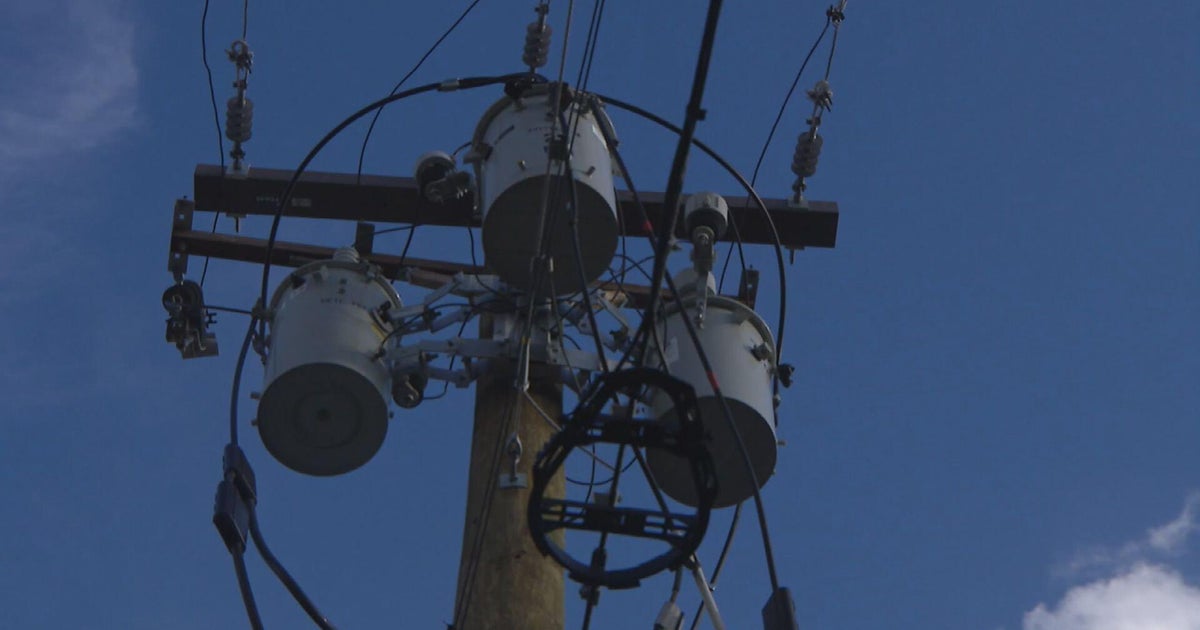Viral tweet spreads misinformation about volcanoes and climate change
In today's world, where even basic facts are being distorted and disputed depending on one's partisan lens, misinformation runs rampant on social media. And there's no topic for which that is truer than the most partisan issue of all in the U.S. today: climate change.
This week, a false claim about volcanoes posted on Twitter went viral. The tweet claimed that Tuesday's eruption of Mt. Merapi in Indonesia "spewed more CO2 than every car driven in history. Climate change is natural."
The tweet generated tremendous interest and engagement, with over 100,000 likes and millions of video views. But scientists say the claim is blatantly false.
"There are a billion cars on the planet today, and this volcano's emissions are tiny compared to their pollution. The statement is pants-on-fire false," says Rob Jackson, a professor of Earth System Science at Stanford University and chair of the Global Carbon Project, a collaboration that measures the various contributions to global greenhouse gas emissions.
- From "flat Earth" to climate change denial, kids are deluged with fake science
- 10 common myths about climate change — and what science really says
"The eruption referred to looks fairly small compared to others at that volcano and around the world," agrees Dr. Ellen Prager, an earth and ocean scientist and author of "Dangerous Earth," a book about volcanoes and climate change. "The ash and gas cloud reportedly rose to 6,000 meters high. In the Mt. Pinatubo eruption of 1991 the ash and gas cloud rose 35,000 meters and was hundreds of kilometers wide."
According to the U.S. Geological Survey, in an average year all global volcanic activity releases a total of 0.13 to 0.44 gigatons of CO2 emissions. In the U.S. alone, in 2017, emissions from transportation from all on-road vehicles was 1.56 gigatons of CO2 equivalent. So, just in the U.S. in a single year, emissions from vehicles is five times greater than all global volcanoes.
The total greenhouse gas emissions from on-road vehicles worldwide is greater than 3.0 gigatons per year — more than 10 times the yearly volcano output. And when compared to the 42 gigatons of emissions produced by all human contributions per year (from energy production, agriculture, industry, etc.), the contribution from volcanoes appears relatively tiny — approximately 150 times less.
Remember, the tweet's claim was not referring to just one year, but "more CO2 than every car driven in history." So the claim is not just wrong, it's wrong my multiple orders of magnitude.
Erroneous claims regarding volcanoes and carbon dioxide emissions are nothing new — they have been making the rounds for decades. In 2015, the fact-checking website Snopes addressed this exact topic and rated the claim as false.
As a scientist, posts that misrepresent the facts concern Prager. "Claims like this, not based on data, breeds misunderstanding," she said, noting that it "fosters and is a function of science illiteracy."
CNET senior producer Dan Patterson, who covers technology and disinformation, sees a problem that stretches beyond science. "Posts like this often disregard facts and science, which might conflict with how we see the world, and instead pander to our emotions and what we want to believe," he said. They're especially problematic on sites like Twitter and Facebook, where "inauthentic and misleading social media posts can spread like wildfire."
The false claim was tweeted by a man who says he is running for governor of California in 2022. He follows his claim about climate change with the assertion, "Taxing us into poverty isn't the answer."
This sentence, referring to the fear of the cost of potential solutions, is a wide-open window into why this issue has become so politicized. While on its face the debate seems to be about science, under the surface it's mainly an argument about one's political worldview.
The tweet's author, Matt Thomas, revealed as much in a follow-up post when he wrote: "This original post was more about taxing us then it was climate."
CBS News asked Ed Maibach, director of the Center for Climate Change Communication at George Mason University, why this tweet is getting so much attention.
"The allure of this tweet to people who don't want to believe that human activity is creating catastrophic climate change is that these claims — while factually wrong — support a view of the world that they want to believe is true, thus they are self-serving," he said.
Maibach also suggested that most people who retweet posts like this are "the unwitting victims of the self-interested lies of the fossil fuel industry."
"Most, if not all, of the tens of thousands of people who have retweeted these lies are good people, people of conscience who would never knowingly harm other people," he said. "They feel they are doing their duty to others by sharing this information with their followers. But they have been deceived into behaving in ways that does harm other people, including their own children and grandchildren."
Editor's Note: This article has been updated. In the Mt. Pinatubo eruption of 1991 the ash and gas cloud rose 35,000 meters, according to Dr. Ellen Prager.



